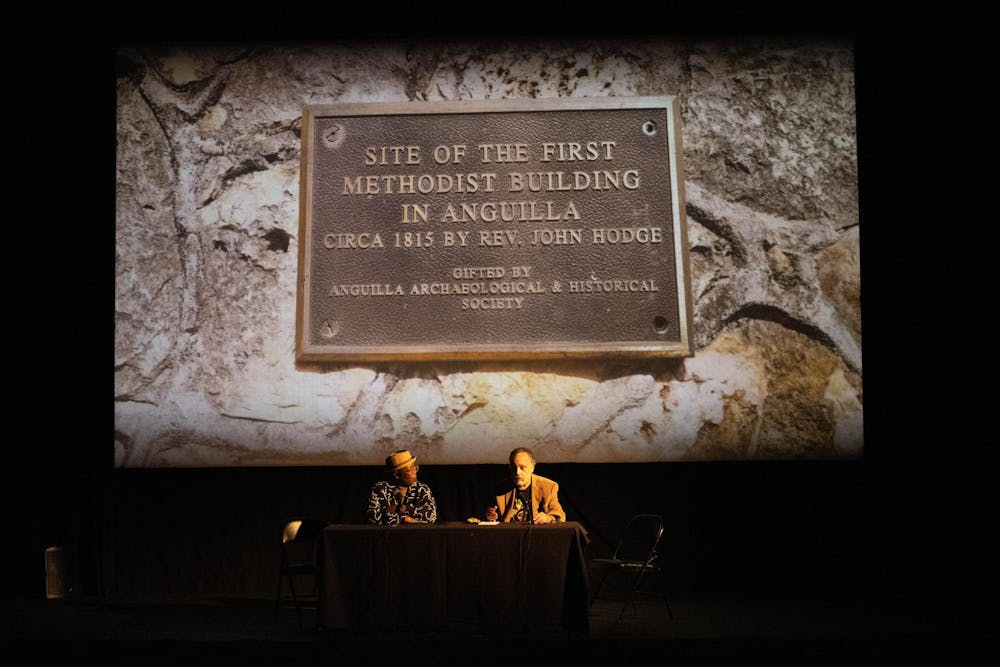In between recent showings of blockbuster films “Deadpool & Wolverine” and “Beetlejuice Beetlejuice” at the Varsity Theatre on Sept. 26, Black independent filmmakers got their time to shine at the premiere of the 2024 Diaspora Festival of Black and Independent Film.
The festival, hosted by the Sonja Haynes Stone Center for Research in Black Culture and History, started with a screening of two films, followed by a Q&A session with the filmmakers and audience members.
The first film screened was a four-minute short titled “SACRED AXA” written, produced and directed by Africana religious studies scholar and director of the Stone Center LeRhonda Manigault-Bryant. The film depicts Manigault-Bryant’s relationship with sacred spaces in Anguilla, a British overseas territory in the Caribbean.
“It was a place that I had stepped foot in, I think back in 2012 for the first time, and it was a place that I felt cosmically connected to immediately upon stepping foot on the soil,” Manigault-Bryant said.
“SACRED AXA” is a compilation of footage from Manigault-Bryant’s trip, taking the viewer through the small island with a population of 14,000 people.
Most footage included in the film moved viewers through the island with her, as it was taken from her perspective — snapshots of a place both unfamiliar to Manigault-Bryant, and yet one that she said felt like home. Manigault-Byrant is also a licensed drone pilot and used drones to film some scenes.
On such a small island, Manigault-Bryant said that there are many sacred places, including churches of multiple denominations, sacred watering holes and other spaces where rituals take place.
Artist, educator and cultural investigator Arturo Lindsay also debuted a documentary he wrote, produced, narrated and directed, titled “Arte Congo: Artists’ Journey on the Congo Coast of Panama.”
The Congos of Panama are descendants of enslaved Africans who escaped Spanish Colonial plantations in the 17th Century. Arturo, who is Panamanian, documents his time in Portobelo, Panama and examines Congo culture through a new Afrocentric art movement called Arte Congo.




